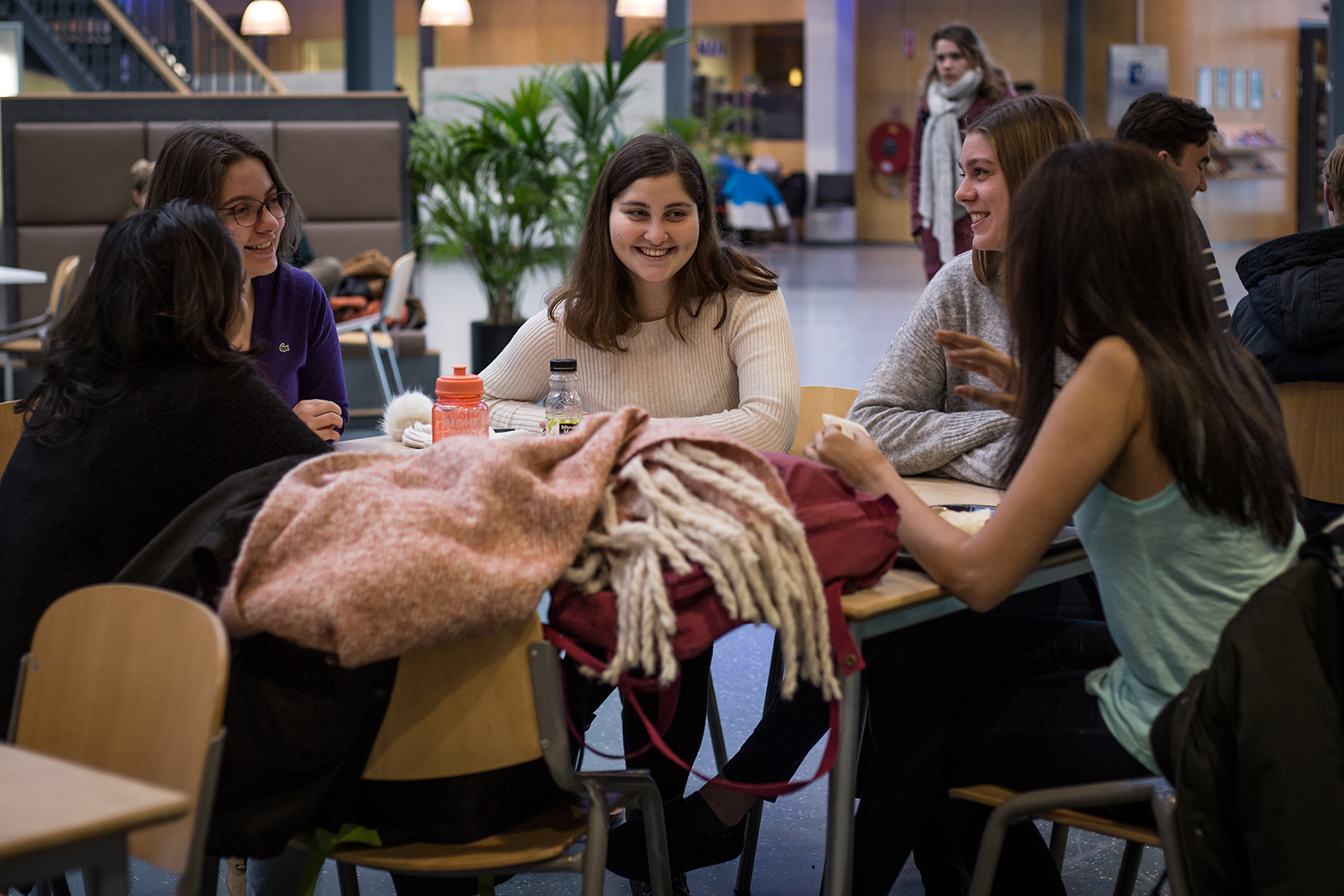How should we keep a check on the flow of students from abroad coming to courses in the Netherlands? The TU Delft is thinking about managing this according to nationality, but professors of law have their doubts.
Students on the TU Delft campus. (Photo: Thomas Zwart)
TU Delft’s Executive Board Chairman, Tim van der Hagen, said to Delta last week that we cannot work without a quota of international and Dutch students in popular bachelor courses. “The best would be if we could determine the number of Dutch students that will be admitted to a course. After that, we can admit students from abroad to fill the remaining seats.”
He is not the only one thinking along these lines. The Rector Magnificus of the University of Amsterdam (UvA) is on his side. “I believe that there should be ways to limit the numbers of international students,” she said in an anniversary speech last January. “Can you imagine a lecture room with eighty percent of students from Germany or China? That would not help us meet our objectives.”
These ideas can also be found in The House of Representatives. Some parties believe that Dutch students should be given priority on courses with numerus fixus – our own students get first choice. At present, this is not the case. They have just as much chance as students from abroad for a place.
‘Rejected students can turn to the law’
But what emerged from a round of questioning, is that professors of law dismiss these ideas. They argue that you cannot say that a course has enough German or French students. This is prohibited on the grounds of discrimination.
“It is difficult enough for European students anyway,” says Professor Pieter Huisman of Erasmus University Rotterdam. “The same rules apply to all EU citizens in Europe. And on top of that, the Netherlands has the Equal Treatment Act that prohibits distinguishing on the basis of nationality.”
This means that students from outside the European Union, such as from China for example, cannot be excluded, confirms his Tilburg University colleague, Professor Paul Zoontjens. “If they are rejected on the grounds of their nationality, strictly speaking, they could turn to Dutch law. They may not do this in practice, but they could do so.”
Courses can only reject non-Dutch students on the basis of objective criteria such as language mastery and their previous education, says Miek Laemers of the Free University of Amsterdam. “But if you offer several English-language courses, you will automatically attract many students from abroad.”
Also read: ‘Quota may restrict Dutch students’
Do you have a question or comment about this article?
redactie@hogeronderwijspersbureau.nl


Comments are closed.